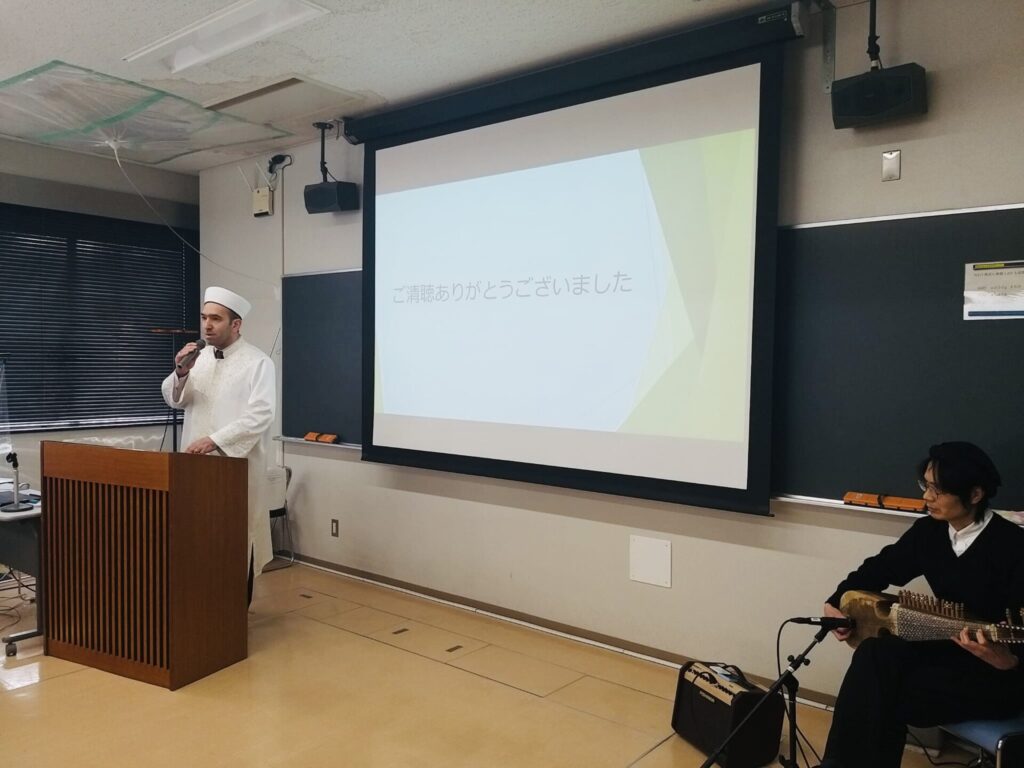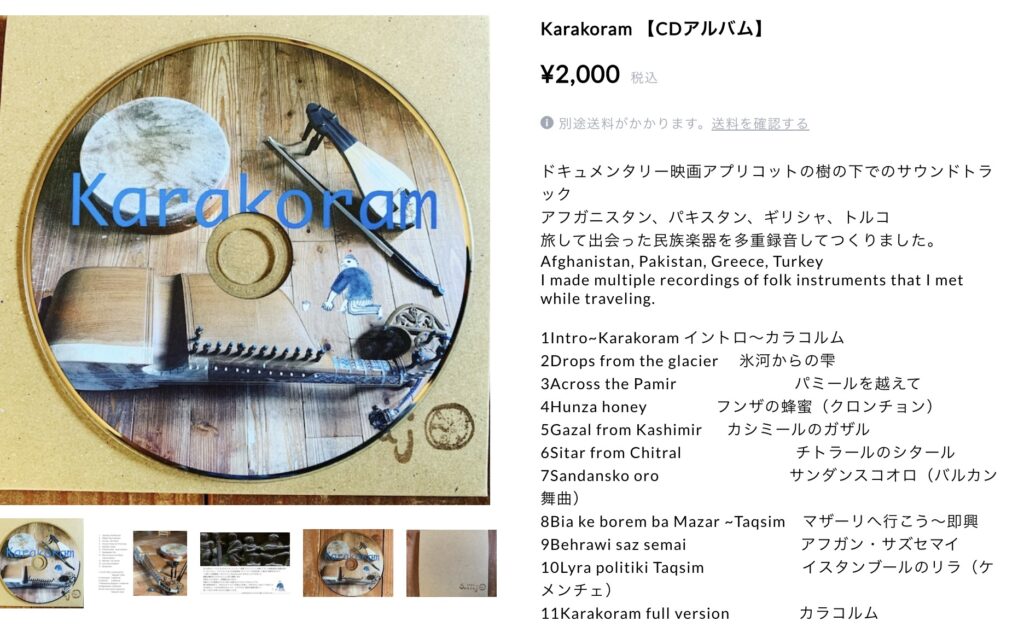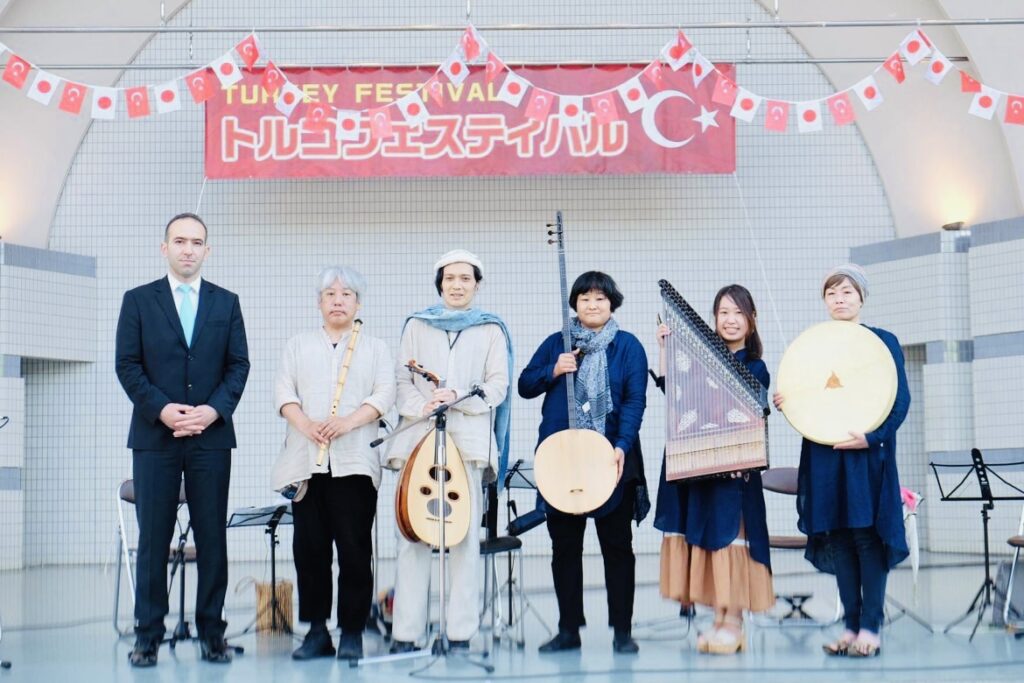Tokyo modal music lab aims to
Through its approach to the world’s traditional musical heritage
It is a meeting point for musicians and students and plays a leading role in education in the field of modal music and traditional music in general.
Organized Sufi music concerts at Tokyo Camii Turkish cultural center.
2021 The organisation, established with the support of the Agency for Cultural Affairs, is
the largest mosque in Japan and a centre of Middle Eastern culture.
and the Tokyo camii dianet Turkish Cultural Centre, the largest mosque in Japan and a source of Middle Eastern culture.
Sufi music concerts were held.
The video above shows a Mevlana commemorative concert focusing on Sufi music, in which, along with traditional pieces
The video above shows the Mevlana commemorative concert focusing on Sufi music, in which, alongside traditional pieces, the group also performed a piece composed by a representative of the organization that blends Afghan musical modes with the rhythmic patterns of Ottoman classical music.
Collaboration project with Arabic calligraphy and floral art at the mosque.
2022/12/11 Live performance with Arabic calligraphy, floral art and the Silk Road folk instrument Rabab.
Performed on Raga Yeman, a musical mode that is ideal for the evening hours in the Silk Road country of Afghanistan.
Organised the Yoyogi performance Turkish-Eurasian Music Festival 2022.
As an organiser of open-air events, we have been working on a stage for the Turkish Festivals, which had been suspended for several years in Corona.
The Turkish Cultural Centre Yunus Emre asked us to organise the event, which was realised by our organisation with the support of the Agency for Cultural Affairs.
It was a great opportunity for musicians and performers to connect.
Lectures on Sufi music at the University of Arts and Sciences.

Photo at Gakugei University
With Imam Rifat, Tokyo Jamii teacher.
Business trip lecture at the University of Arts and Sciences.
The world’s largest population during the 21st century.
Modal music in the Islamic world was
the foundation upon which Western music developed.
In Turkey, with its Ottoman traditions, the
The Islamic call to prayer (azan) and
modal music techniques are also used in the recitation of Quran.
Translated with www.DeepL.com/Translator (free version)
Musical production
Music for a documentary film about the organic food company N Harvest Co.
The film’s music was composed and arranged on traditional Pakistani instruments by the organisation’s president, Takayuki Ueda.。

The film’s soundtrack was released in 2020 as a CD album Karakoram.
In Turkic, Kara means black and Koram means sand, and the highway of this name is still used as a route from Kashgar in the Uighur Autonomous Region to Pakistan.
It has also had a great influence on our Japanese identity.
The instruments of the Silk Road, which have also had a great influence on our Japanese identity, are nostalgic in some way, while at the same time being a source of inspiration.
In the 21st century, when diversity is so important, it is very important to understand the instruments and music of these regions.
Produced the Ainu tonkori, a Japanese Eurasian musical instrument.
Research has shown that the tonkori, which is believed to have been brought to Hokkaido from the Sakhalin Ainu, has its roots in Central Asia. Our organisation, which studies musical instruments from Eurasia, has actually tried to create a tonkori.
The idea of putting beads balls in the resonating body and blowing the soul into it is interesting.
Collaboration between Tonkori and Silk Road instruments.
I played it together with a Silk Road rubbing instrument similar to the Tonkori.
It took about a week to make, and I made it during the winter break. Shaving the pegs was a good experience as it can be applied to other instruments such as the rabab.
One of the problems with the tongkoli is that its volume is very low. Ethnic instruments are less loud than western instruments, but even so the volume is too low, so I introduced the resonant string system of the rabab.
From here, it’s just a matter of setting up the bridge and stringing it up. This is the end of this project for now, as the Sufi music project has started in 2022. After that, you can look forward to the rest of the year.

